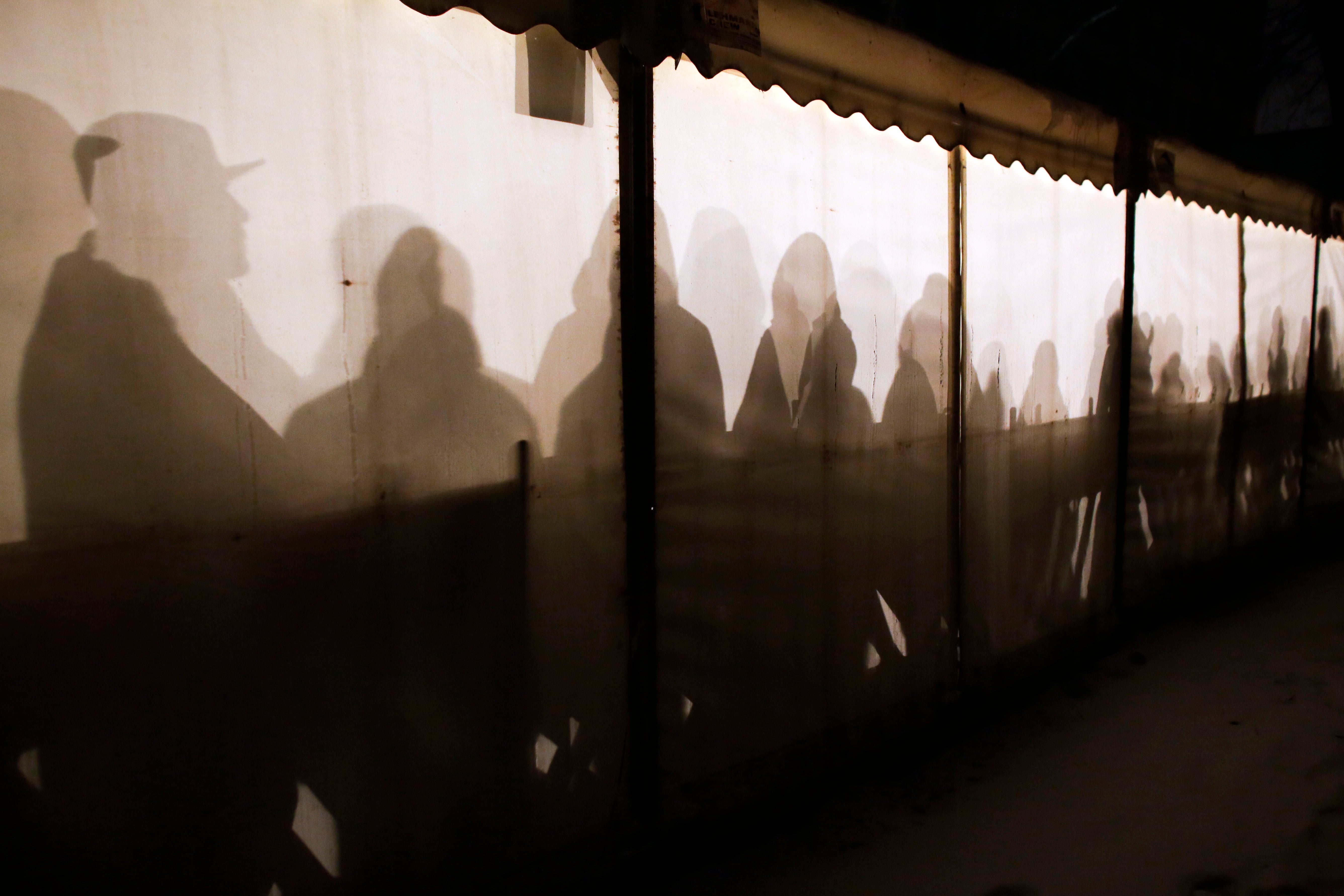German chancellor, state officials meet for migration summit
German Chancellor Olaf Scholz is holding a summit with top officials of the country’s 16 states over the growing number of asylum-seekers and the lack of housing and spaces in schools or kindergartens for them

Your support helps us to tell the story
From reproductive rights to climate change to Big Tech, The Independent is on the ground when the story is developing. Whether it's investigating the financials of Elon Musk's pro-Trump PAC or producing our latest documentary, 'The A Word', which shines a light on the American women fighting for reproductive rights, we know how important it is to parse out the facts from the messaging.
At such a critical moment in US history, we need reporters on the ground. Your donation allows us to keep sending journalists to speak to both sides of the story.
The Independent is trusted by Americans across the entire political spectrum. And unlike many other quality news outlets, we choose not to lock Americans out of our reporting and analysis with paywalls. We believe quality journalism should be available to everyone, paid for by those who can afford it.
Your support makes all the difference.German Chancellor Olaf Scholz has invited top officials of the country's 16 states for a summit Wednesday on the growing number of asylum-seekers and the lack of housing and spaces in schools or kindergartens for them.
The federal government and the states have been arguing for months over who gets to pay for the rising costs.
In addition to the more than 1 million Ukrainians who came to Germany last year looking for shelter from Russia's war on their country, the number of asylum-seekers is also up steeply. Ukrainians receive refugee status in Germany immediately and don’t need to apply for asylum.
In 2022, more than 244,000 people applied for asylum in Germany. In the first four months of this year, 101,981 people applied for asylum — an increase of 78% compared with the previous year, according to the Federal Office for Migration and Refugees. Experts estimate that up to 300,000 migrants could apply for asylum in Germany this year.
Many of those now arriving in Germany on a daily basis trek across the Balkan s and come from war-ridden countries such as Syria or Afghanistan. They rely on smugglers to take them across the borders so they can ask for asylum the moment they arrive on German soil.
Local communities — which are represented by the states at Wednesday's migration summit — have been putting up asylum-seekers in tents, containers, gyms or former airports for months as regular housing gets scarce. In addition, they say there's also a lack of kindergarten and school spaces for migrant children. They demand billions in additional federal funds to cover their costs.
The national government, however, rejects their demands, saying it spent 28 billion euros ($30.7 billion) on migration last year alone. More than 12 billion euros were invested in combating the causes of flight abroad, and around 15 billion were provided for direct relief to the states and local authorities, German news agency dpa reported.
For this year, the government says it will give 15.6 billion euros in federal support to the states and communities to help support their costs for migration — which the states claim is still not enough.
While the migration level of 2015-16, in which more than 1 million people applied for asylum in Germany, has not been yet reached, officials fear that the growing number of migrants could also lead to a re-strengthening of far-right parties trying to exploit anti-migrant sentiment for their own populist purposes.
There have been calls to reinstate border controls in Germany, which usually does not control its outer borders as it is a member of the visa-free Schengen travel zone. Scholz himself said earlier this year that Germany needs to do a better job curbing illegal migration and deporting those whose asylum bids get rejected. Germany has repeatedly reintroduced checks along its southern border with Austria in an effort to clamp down on migration. Austria in return, reinstated controls on its border with Slovakia to keep migrants from entering without authorization.
Beyond Germany, there’s also growing concern that the arrival of migrants throughout Europe is getting out of control and that a joint European solution needs to be found.
Some top officials, including German Interior Minister Nancy Faeser, support plans to establish transit camps for migrants at Europe’s outer borders where officials can decide on asylum bids — and deport those who are rejected before they can even travel to popular destinations such as Germany, Britain or Scandinavia.
“For too long, we have made it difficult for people to come to Germany who we need as bright minds and hardworking hands," German Finance Minister Christian Lindner said Tuesday on ZDF public television. "And for too long we have made it easy for people to stay who are actually obliged to leave because they entered Germany irregularly. And that has to change.”
___
Follow all AP stories on migration at https://apnews.com/hub/migration